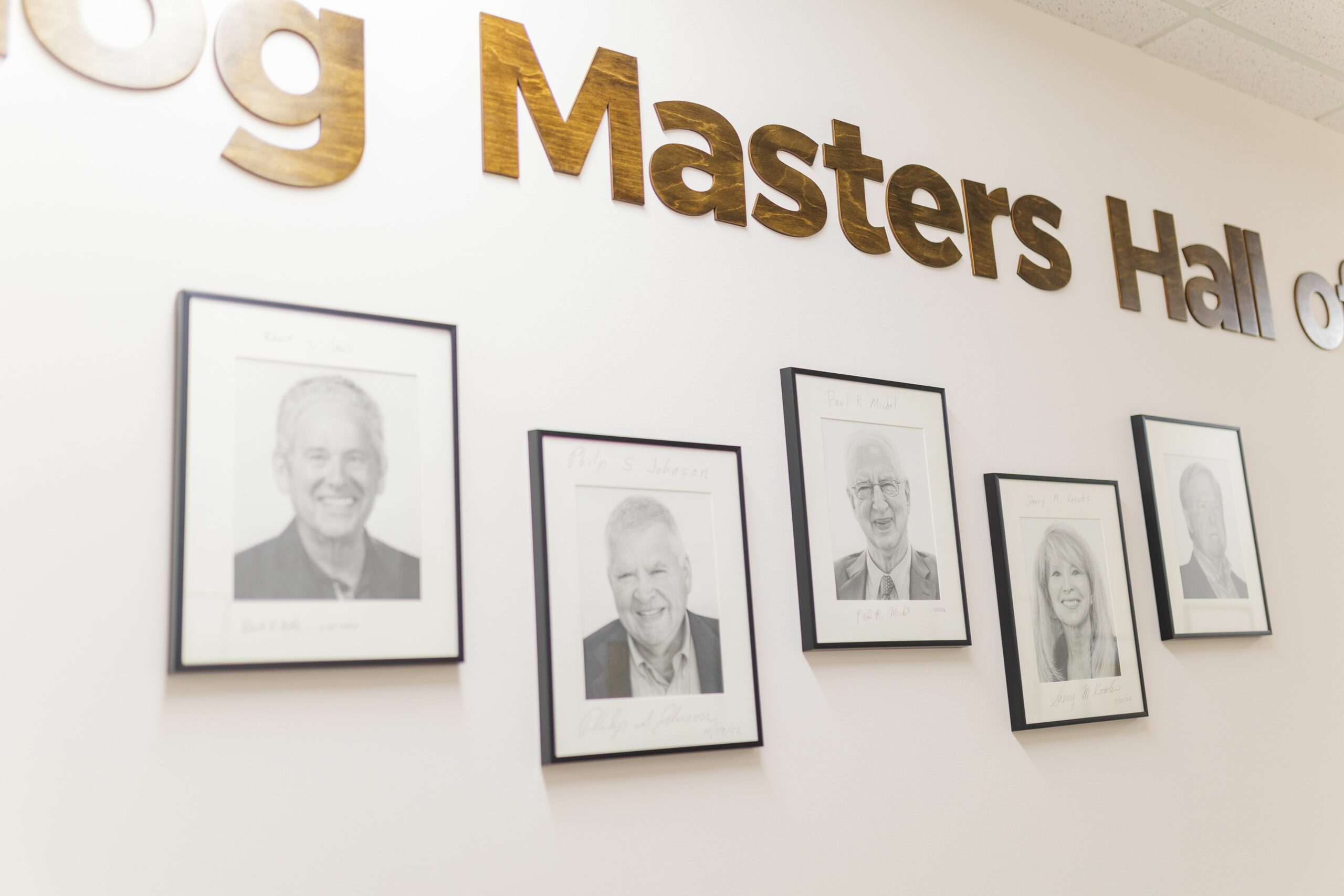“Quinn told attendees that Stoll has been a mentor and friend for many years and that the award represents Stoll’s role as the ‘patriarch of the first family of IP and a flame in the heart of the IP community.’”
IPWatchdog held its first annual Patent Prosecution and Portfolio Management Masters Program Tuesday, June 20, to Wednesday, June 21, covering cutting-edge developments that impact the ability to get enforceable patent applications through the U.S. Patent and Trademark Office (USPTO), such as the recent ruling in Amgen v. Sanofi, the implications of artificial intelligence (AI) for patenting, and ethics pitfalls practitioners may face as a result of AI use.
The program also featured the latest inductions into the IPWatchdog Masters Hall of Fame; IPWatchdog Founder and CEO Gene Quinn presented Bob Stoll, former USPTO Commissioner for Patents and currently Partner and Co-Chair of the IP Group at Faegre Drinker Biddle & Reath, with an award, and also recognized the late Q. Todd Dickinson, who served as USPTO Director from 1999 to 2001.
Stoll also participated in the Masters program on Tuesday, serving as moderator for a panel titled “The Good, The Bad, and the Ugly: Tips and Strategies for Building a Strong Patent Portfolio,” where panelists discussed some of the traps patent attorneys fall into with respect to sloppy prosecution. Commenting on the mistakes he often sees when he’s handed applications that have been worked on previously, he said prosecution mistakes are made on all sides, but it doesn’t have to be all bad or all ugly. “Sometimes the examiners are at fault, sometimes the applicants are. I think if we all tried to do the best work we can, we’d have a better patent system,” Stoll said.
Another panel featured recently retired Commissioner for Patents Drew Hirshfeld, who participated in a session titled, “Practical Tips for Increasing Patent Allowance Rates,” where panelists discussed in part the ins and outs of examiner interviews and interview summaries. Some of the panelists and audience members expressed frustration that examiners often refuse interviews and they disagreed on how to deal with that problem. While some said going to a Supervisory Patent Examiner (SPE) or using the USPTO’s Patent Ombuds Office was the right move, others said going around an examiner would only result in resentment and ultimate rejection.
Once an interview has been conducted, the interview summary that gets filed as part of the record becomes key. Hirshfeld said he has “seen some interview summaries that make you shudder, both from attorneys and examiners.” The struggle often comes from the fact that the Office would like the interview summary to be accurate, while practitioners might want to gloss over certain points that were covered. Though he made it clear he wasn’t speaking for the Office anymore, Hirshfeld said, “From the Office’s perspective I think the right interview is the accurate interview. From a practitioner’s standpoint, you may or may not want everything that was said in there.”
In a panel following Hirshfeld’s, titled “Patent Robustness After Amgen: Drafting Specifications to Satisfy the 112 Requirements of Tomorrow,” current USPTO Deputy Commissioner for Patents, Robert Bahr, said that if an examiner is being unreasonable about the interview process, “you really should talk to the SPE or the group director. They do want to help, and if no one ever complains everyone thinks everything’s hunky dory.”
But Bahr’s fellow panelist, Dan Evans, of Merchant & Gould, wasn’t convinced. “When you start going around examiners, my experience is it comes back to bite you in the patoot,” Evans said.
Overall, while the panelists said Amgen has implications for means-plus-function claiming, the consensus was that not much has changed post-Amgen because such claims have always been questionable to begin with.
Two panels on Wednesday tackled the role of AI in prosecution, including one on the ethical implications for practitioners with respect to the use of AI in the invention process, as well as the many other issues that may arise, and another panel on “The Challenges of Drafting and Prosecuting AI Patents.”
“I would hope to have a conversation with every client about every instance of use of AI that involves their confidential data,” said Jeffrey Cobia of Schwegman Lundberg & Woessner, a panelist who took part in the ethics session.

Renee Quinn presents the illustrated portrait of Q. Todd Dickinson during his posthumous induction into the IPWatchdog Masters Hall of Fame.
Masters Hall of Fame Inductees
Upon awarding Stoll with a trophy in the shape of a flame, Quinn told attendees that Stoll has been a mentor and friend for many years and that the award represents Stoll’s role as the “patriarch of the first family of IP and a flame in the heart of the IP community.”
Dickinson passed away in May of 2020; in an article commemorating his legacy, Quinn said that Dickinson was “a great man who, through his many accomplishments, did much domestically and internationally within the intellectual property world [and] one of my best, truest friends.”
Videos of the panels from this week’s program will be made available in the coming weeks.






